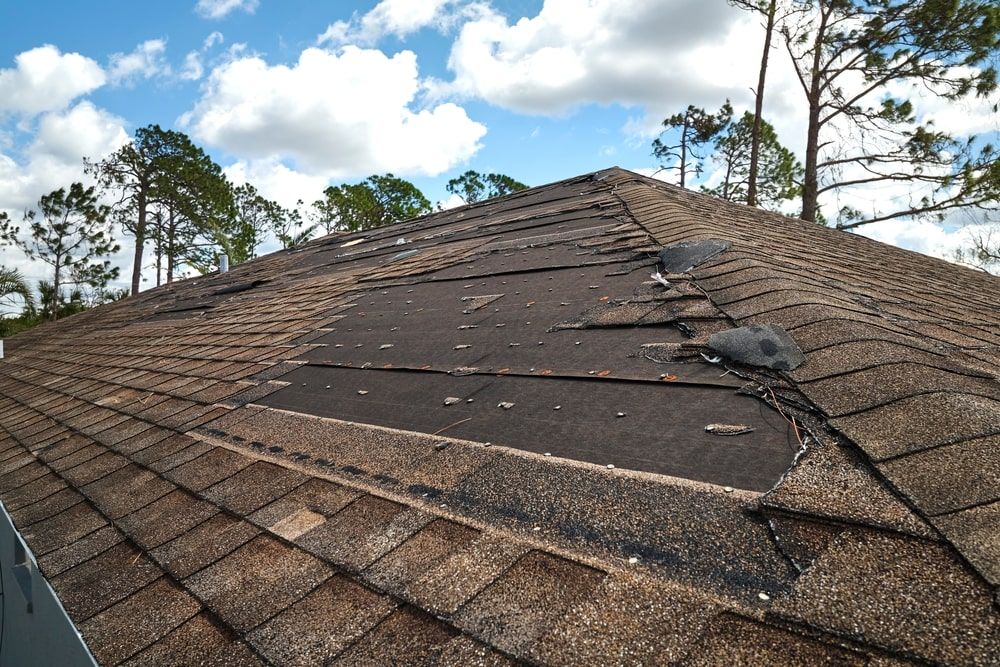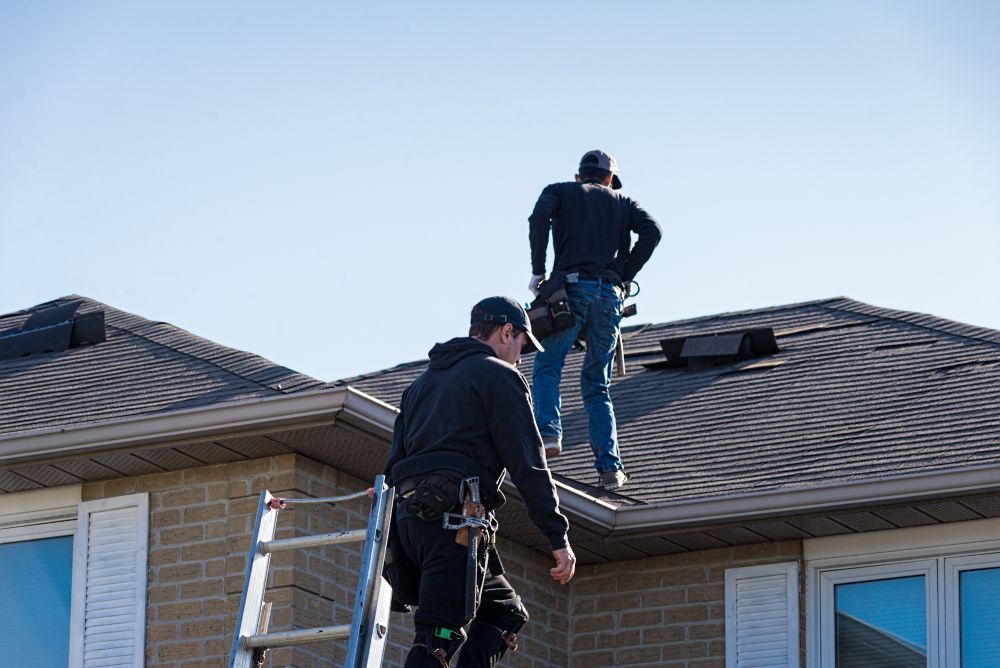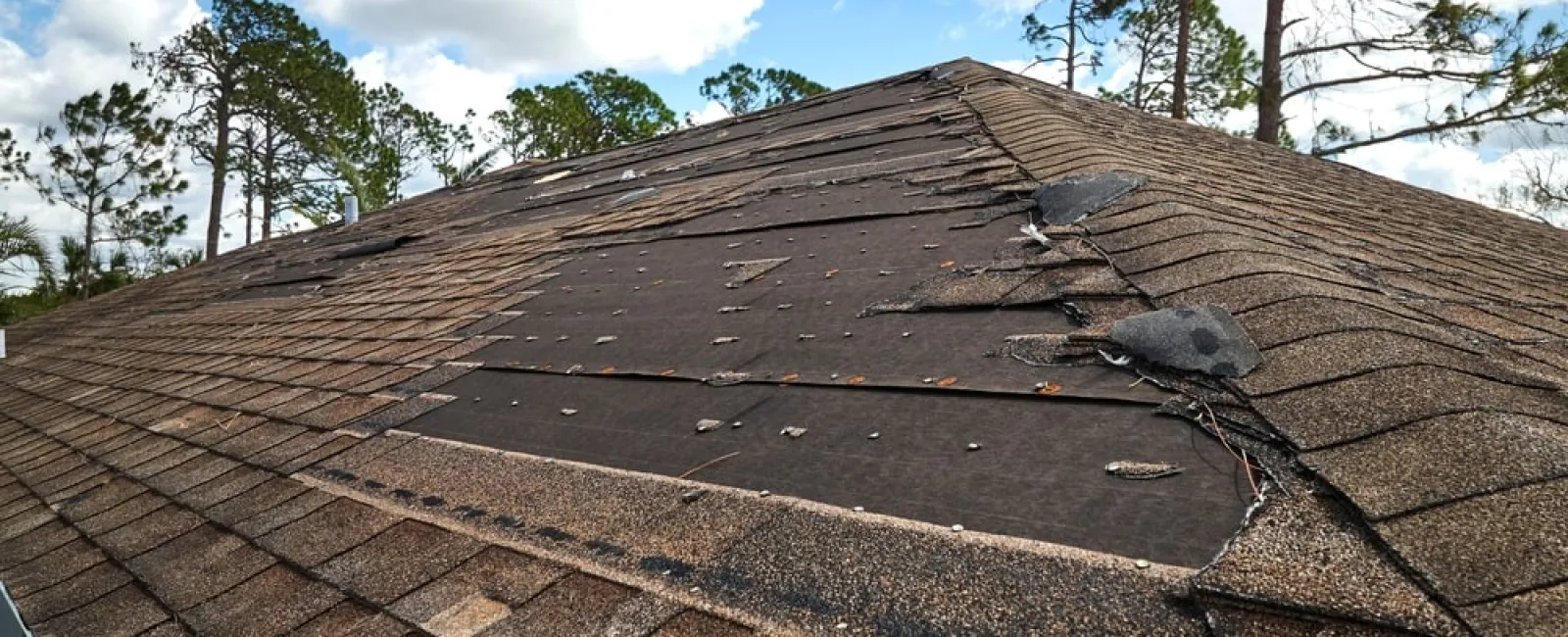Any amount of roof damage is a stressful experience. If you've recently discovered roof damage, your mind is probably spinning with a million questions. To help diminish the stress of this frustrating time, Rising Star Roofing in Florida is here to help.
Filing a roof damage claim through your insurance can be a daunting task if you aren't fully aware of what the process includes. No matter how small or big the extent of roof damage is, Rising Star Roofing in Florida can walk you through each step of the process.
What Is Covered Under a Florida Homeowner Insurance Policy?
As an owner of homeowner insurance in Florida, it's important to know what is and what isn't covered under your policy. Understanding what is covered and what isn't is the first step to being better prepared if the unfortunate reality of roof damage happens to your Florida home.
Typically, the standard variation of most homeowner insurance policies covers roof damage caused by sudden or accidental events, such as:
1. Hurricanes and Tropical Storms
Florida is especially susceptible to hurricanes and tropical storms. Extreme weather conditions that stem from these events commonly cause roof damage due to raging winds. Most homeowners' policies cover damages related to these events.
2. Hail Damage
Hail damage has the potential to cause significant damage to a home's roof. Shingles, tiles, and other roofing materials become at risk when hail starts coming down. Thankfully, this type of damage is usually covered under most insurance policies.
3. Falling Debris
Another type of damage typically covered under policies is damages related to falling debris. Falling debris typically boils down to tree branches and other materials of such.
4. Fire
If your roof in Florida ends up being damaged by fire, it's generally included in your insurance coverage. What typically isn't covered by homeowners insurance includes:
- Wear and tear due to age-related issues or lack of maintenance
- Damages and repairs that have been neglected
- Flood damage, which usually requires separate insurance coverage
Steps to File a Roof Damage Claim in Florida
Now that we've mentioned what is typically covered by homeowners insurance, it's time to cover the steps in filing a roof damage claim in Florida.
To successfully file a roof claim in Florida, follow these steps:
1. Identify Roof Damage

First, identify the damage done to your roof. Whether you think there is or not, it's in your best interest to glance at your roof after a storm. Keep an eye out for missing or damaged shingles, sagging, leaks, or water stains on your ceiling. For safety reasons, don't climb up onto the roof; there may be areas of damage that are vulnerable to added weight. Carefully set a ladder onto the side of the house to get a good vantage point.
2. Document the Damage
One of the most important aspects of filing a roof claim in Florida is documentation. Make sure to take clear and detailed photos and videos of all damages. Photos and videos should include close-ups and different angles to showcase the extent of damage.
Without proper documentation, the likelihood of your insurance covering the damages is not great. Remember to proceed with caution and be safe when documenting the damage.
3. Contact Your Insurance Company
Contact your insurance company as soon as possible because most providers have a limited window when it comes to submitting a roof claim in Florida. During your call, describe the damages in detail and let them know if any temporary repairs were made.
4. Schedule an Inspection

Soon after, your insurance company is likely to send an adjuster to your property. The adjusters will inspect the damages and determine the cost of repairs. During the inspection, you'll want to be in attendance to verify all damages are acknowledged.
5. File the Claim
If you're ready to agree to the adjuster's assessment of the damages, you can move forward and file a claim. Once the necessary documentation, including the estimates of the contractor, the claims process is ready to get started.
6. Hire a Qualified Roofer
To make sure all repairs are done right and efficiently, you'll need to hire a qualified roofing contractor. Turn to Rising Star Roofing in Florida for all of your roofing repair or replacement needs during these situations. We're more than happy to assist you and work with your insurance provider during the process.
7. Consider Hiring a Public Adjuster
If the claims process is a little too daunting or if you're hesitant about the assessment made by your insurance, consider the help of a public adjuster. A public adjuster will do the same things as the adjuster from your insurance but will go through the claims process and negotiate for you.
8. Challenges in Roof Damage Claims
There are some challenges homeowners should keep in mind when it comes to roof claims in Florida. Insurers could deny a claim if they think:
There is pre-existing damage
The damage isn't covered under your policy
The roof has been neglected
Additionally, insurers may try to offer a settlement that doesn't cover the full cost of repairs. For a successful roof claim in Florida, stay updated on market rates and repair costs to aid your negotiation process.
Contact Rising Star Roofing Company for Roof Damage Repair
Need roof or gutter repairs after a recent storm in Florida? Contact Rising Star Roofing in Florida for high-quality workmanship and an unbeatable commitment to your satisfaction. From the inspection to a successful repair job, we'll help you every step of the way.

